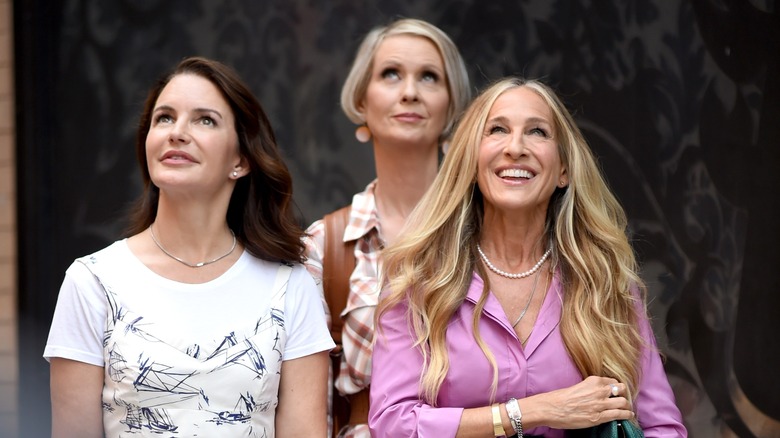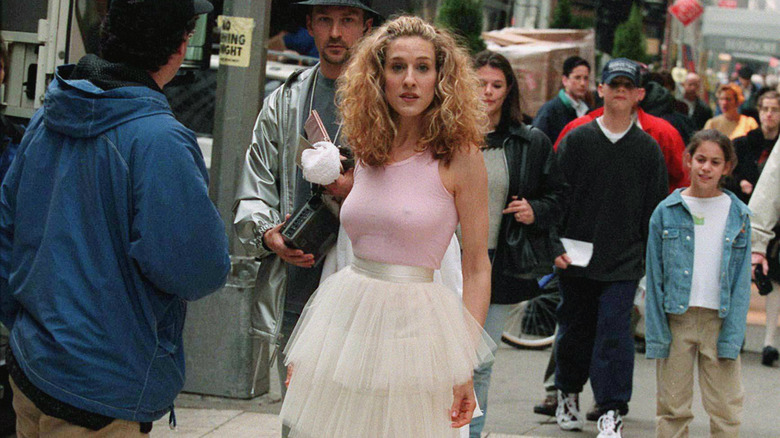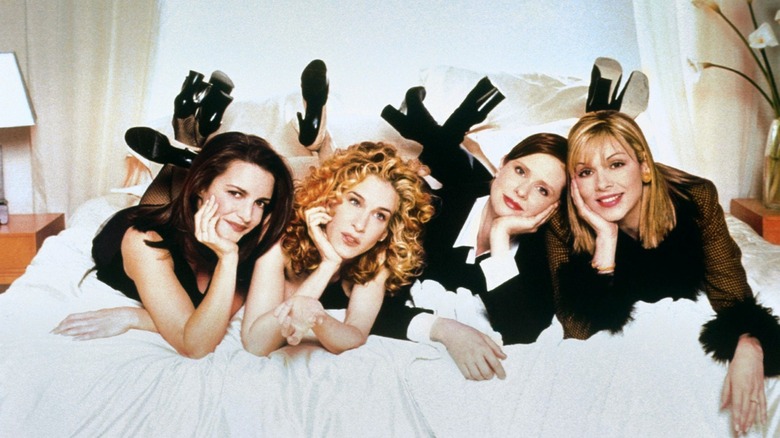Sex And The City Author Candace Bushnell Isn't A Fan Of Carrie Bradshaw's Transformation Over The Years
"And Just Like That," the sequel series set in the world of "Sex and the City" took some pretty massive swings with their evolution of some of TV's most iconic women, and plenty of people had some capital "O" Opinions™ on whether or not this was a good thing. One of the series' biggest naysayers? Author Candace Bushnell, whose anthology "Sex and the City" was the basis for the original TV series on HBO.
"I'm really startled by a lot of the decisions made in the reboot," Bushnell said in an interview with Variety. "You know, it's a television product, done with Michael Patrick King and Sarah Jessica Parker, who have both worked with HBO a lot in the past. HBO decided to put this franchise back into their hands for a variety of reasons, and this is what they came up with."
"Sex and the City" began as a newspaper column written by Bushnell for The New York Observer from 1994 to 1996, and served as a semi-autobiographical look at the lives of her and her friends. Her columns introduced the characters of Carrie, Samantha, Miranda, Charlotte, Mr. Big, and a few others, who all later became the central focus of the HBO series of the same name. Her unhappiness with "And Just Like That" is nothing new, as Bushnell has been speaking out against HBO's character portrayals of "Sex and the City" for over 20 years.
'That's not my story'
The Carrie character in Bushnell's columns was based on her personal experiences, but with only two years of columns in the novel and six seasons of television for HBO to fill, there were obviously going to be some major changes made and storylines that don't sync up with her lived experiences. "I've said this, but when the character of Carrie sleeps with Mr. Big after he's married to somebody else — that's when I felt like the character's becoming something other [than myself]," Bushnell said. The affair she's referring to happens in "Sex and the City" season 3, episode 9, "Easy Come, Easy Go" which aired on August 6, 2000, more than four years after the book's initial publication.
The affair with Mr. Big eventually leads to their marriage, and the status of their relationship is central to Carrie's story in "And Just Like That." Bushnell was displeased with the decision, adding that the character was nothing like her. "Carrie Bradshaw ended up being a quirky woman who married a really rich guy and that's not my story, or any of my friends' stories ... but TV has its own logic."
As difficult as it may be to see the deviations from Bushnell's original autobiographical source material, this is not uncommon when selling and adapting one's work. Once Bushnell sold the rights to "Sex and the City" to HBO, they were within their right to change things as necessary.
Adaptations are seldom exact copies
As Bushnell said herself, "TV has its own logic." When a piece of literature is adapted for the screen, both big and small, plenty of changes are made to accommodate changing cultural norms, time constraints, budget constraints, and in the case of something like "Game of Thrones," how much source material is even available to cover the length of a show's run. HBO making creative changes to Bushnell's book is nothing out of the ordinary not only as an industry practice, but also in terms of the trajectory of the characters. Bushnell has disliked the changes made since the halfway point of the series, so of course she's going to dislike the decisions made for "And Just Like That."
The evolutionary character changes "And Just Like That" made were questionable, sure, but how closely they related to Bushnell's original vision is not really something we should be concerned with. The characters of "Sex and the City" may have started out as echoes of Bushnell and her friends, but they haven't been the exact copies of them for a very, very long time. The unfortunate reality is that once a property is accessible for adaptation, what happens with it is out of the creator's hands unless they establish themselves as involved through a producer role of some kind, and even then, that's not a guarantee. It's a bummer that Bushnell isn't happy with the way her characters have transformed over the years, but at least they still exist exactly as she wanted in her book.


